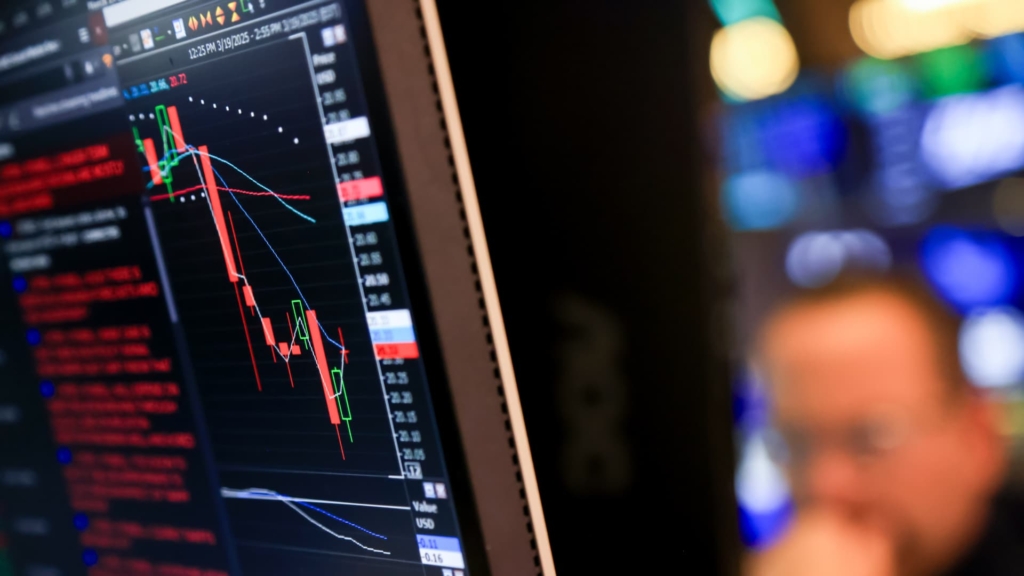The venture capital sector is grappling with heightened challenges as it navigates the fallout from last week’s massive stock market decline. This upheaval has been exacerbated by ongoing uncertainty surrounding U.S. tariff policies.
The scarcity of initial public offerings (IPOs) and mergers and acquisitions (M&A), alongside the growing trend of startups opting to remain private for extended periods, has put significant pressure on venture capital (VC) funds. Typically, venture capitalists can only realize returns on their investments when a company goes public or is acquired, thus limiting their ability to cash out in the current climate.
Following President Donald Trump’s recent announcement of reciprocal tariffs affecting multiple countries, two prominent tech startups, Klarna and StubHub, have decided to postpone their IPO plans due to a steep drop in global equity markets. Both companies had recently submitted IPO prospectuses, highlighting the timing of their decision.
Tobias Bengtsdahl, a partner at Antler’s Nordics fund, emphasized to Finance Newso the challenges posed by the current market volatility, stating, “No one can go out with this turbulence. When the market plunges like it has now, you have to make similar predictions on the private markets as well.”
Challenging Times for VC
The disparity between private and public market dynamics complicates capital raising for tech startups. As valuations potentially decline, accessing funding from venture capital or public markets becomes increasingly difficult.
This situation is poised to impose further restrictions on startups, particularly those in growth stages, as they generally face heightened exposure to public market fluctuations in comparison to early-stage ventures.
In private markets, where liquidity is limited, selling shares is more complex. Venture capitalists’ primary options for divesting their stakes are via IPOs or acquisitions, collectively known as “exits,” or selling to other investors on the secondary market.
Alex Barr, a partner and head of Sarasin Bread Street’s private market fund management, stated that general partners are under considerable pressure from limited partners to ensure exits occur, noting that IPOs represent a “very fickle beast to manage.” General partners oversee a venture fund, while limited partners are typically institutional investors or high-net-worth individuals who invest in these funds.
Limited partners invest with the expectation of substantial returns over the fund’s life, which can span up to a decade. Early-stage funds are particularly focused on securing investments that yield significant returns, emulating the successes of companies like Uber and Spotify for their backers.
Potential Upside for European Startups
Conversely, this landscape may present an opportunity for private tech startups in Europe to flourish, suggested Sanjot Malhi, a partner at London-based Northzone. He remarked to Finance Newso that the current lull in IPO activity is a natural reaction to market instability and anticipated clarity on company standings as stability resumes.
Malhi added that if talent and liquidity perceive the U.S. market as less favorable, there is an opportunity for Europe to benefit from this shift.
Christel Piron, CEO of PSV Foundry, echoed similar sentiments, noting that the uncertainty driven by tariffs has prompted Europe to move closer together, with more founders choosing to remain in the region to scale their businesses in an effort to bolster a resilient European tech ecosystem.
Malhi further pointed to alternative exit strategies for VC funds, suggesting that mergers and acquisitions could become a viable avenue if the IPO window narrows in the long term. However, he warned that the risk of late-stage firms encountering “down rounds,” where startups must raise funds at lower valuations, could increase.
He forecasted a potential rise in later-stage fundraising activities as companies seek to bridge the capital gap until more favorable opportunities arise, even if these come at reduced valuations.
Looking ahead, investors remain hopeful for significant tech IPOs to materialize as Trump’s presidency progresses. VCs had previously anticipated that the Trump administration would revitalize the IPO market.
“Many believe Trump will facilitate an open IPO and M&A market,” Bengtsdahl reflected, noting, “It’s six months into his term, and while the market seems patient regarding initial setbacks, expectations are mounting for this to happen within his administration’s timeframe.”


























